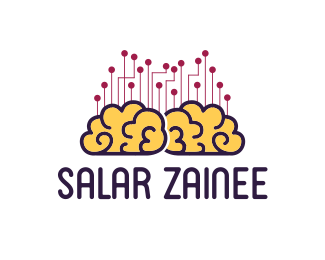web of knowledge and science now if you're an academic
web of knowledge and much of this is the web of science now if you're an academic or you're an undergraduate and you have access to it you may already be using to be well aware of it although it's perfectly possible that you are in fact an undergraduate at the University and despite the fact that you do have access to this amazing resource it hasn't been made clear to you and you haven't been making good use of it in which case I recommend that you do now what it is a huge number of scientific papers accessible on the web and they are cost reference both forwards and backwards in time so for instance you look at the paper you read it and you can see that it's cited lots of other scientific papers there are all the references of all those other papers and you can click on them they got little links and Being there's that paper that it's cited and dot and easy go backwards in time showing that this paper got its knowledge from all these papers back in time but also if someone later writes another paper that cites the one you were reading then it you're the one you're reading will say cited by and you can click on that and then see all the articles that cite that paper so it's cross-referenced forwards and backwards in time it's wonderful and you can do it's huge amount of research very very quickly on this because you don't need to wander around libraries or ordering journals through interlibrary loans no no instead just with a couple of clicks you've got that other article and the next one the next one oh he cites him and oh he doubts him what did he have to say click and you're there it's wonderful for checking facts and finding out about scientific stuff now it comes from the science Citation Index which is something that was created by a man called Eugene Garfield just after the war and of course with modern computers so much more can be done this coincided with people ,
Theory BY ROBERT MAXWELL explosion of scientific publication
Robert Maxwell, there were others but Robert Maxwell was perhaps chief among them who noticed that there was a niche in the market there was an explosion of scientific publication after World War two and there are all these academics around the world working already being paid by University who are just desperate to get themselves published and so he could get them to contribute articles to his journals for free and then sell those journals for a high price back to the universities that employed those academics what are we now today the web of knowledge is owned by a company called Thomson Reuters you may know Reuters the news agency but it's part of that same group and yeah this is where I stopped infusing about it and start criticizing it you see I did some research a while back about why so many news reports about science are so bad and they read a lot like press releases well that's because they're taken largely from press releases why because the BBC journalists don't have access to the web of knowledge I checked this I did some primary research I rang around I spoke to the top person in Thomson Reuters about this and after doing lots of phoning around I spoke to the actual person at the BBC who was involved in the sanegotiations with Thomson Reuters and it seems that they did not come to an agreement which is why so many journalists just report just regurgitate the words from press releases and a lot of those press releases, of course, come from companies with a vested interest in something being thought that unfeasible or really great or whatever and that's a great loss don't you think for the public web knowledge and understanding of science so why doesn't
Thomson Reuters sells the right of access to the web of knowledge
Thomson Reuters sell the right of access to the web of knowledge to the BBC well furry that I don't completely understand the policy is that they will only sell not individuals but to large organizations and these have to be all gust organizations for some reason and the BBC didn't particularly want to spend a large amount of money buying the right for everyone in the BBC right the way down to the cleaners to have unlimited access to the web of knowledge they just wanted you to know the researchers and the journalists the people who it obviously would benefit from access to this to have that access and so no agreement was reached and the BBC does not have access to the web of knowledge and in fact very few people do about 97 percent of people in fact in this developed nation from which I'm speaking to you now don't have access only 3% err that that privileged intellectual elite the academics and so forth so isn't that a shame you someone ago web of knowledge was democratized quite a bit by the arrival of public libraries and governments and local councils and so forth paid for everyone to have access to so much more knowledge through public libraries well today on computers so much more can be done don't you think it would be better if everyone could just check the facts having an argument about another climate science or something here's the scientific pape.
- web of science journals,
- web of science impact factor,
- web of science core collection,
- web of science group,
- scopus,
- web of science login,
- web of science thomson reuters,
- web of science author search,








0 Comments